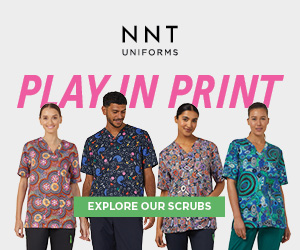Being a health professional is about empathy as much as it is about evidence.
With the recent announcement of a government deal with the manufacturers of the Moderna mRNA-type (same as Pfizer/Comirnaty) vaccine, Australia may have at least three different COVID-19 vaccines on offer, providing it is approved by the Australian Therapeutic Goods Administration (TGA), by the time this column goes to print.
The Moderna vaccine has demonstrated high efficacy, safety, and effectiveness overseas. In the United States, the Pfizer-BioNTech or Moderna COVID-19 vaccines was 94% effective against COVID-19 hospitalisation after two doses and 64% effective after one dose in adults ≥65 years.1
Elsewhere, I have written in greater depth about how the COVID-19 vaccines work,2 their effectiveness,3 safety and side effects.4,5
In summary, as we’ve all heard many times: “the COVID-19 vaccines are safe and effective”. This includes the AstraZeneca vaccine, which is still highly efficacious at preventing symptomatic COVID-19, severe and critical disease, and hospitalisation despite reports of extremely rare instances of blood clots.6
Perhaps it’s a combination of desensitisation to being told repeatedly by experts and politicians (often mutually exclusive) that the vaccines are safe and effective and at once bombarded by media reports of the latest (almost exclusively minute) number of adverse reactions that has resulted in an increasing sense of hesitancy and even antipathy towards the prospect of vaccination.
In my last column, I wrote about risk society and its postmodernist challenge that knowledge claims about reality are problematic and contestable. Within a postmodern risk society, “the evidence” can be disputed and claims of “truth” reproved with “alternative facts”. But apart from this philosophical explanation of why people may be ambivalent despite, or even because of, the evidence, what else can explain vaccine hesitancy in more practical terms?
There are many contributing factors to vaccine hesitancy. People with lower incomes and lower levels of education tend to be more hesitant towards vaccination.7
Having to attend an unfamiliar setting (ie. a mass vaccination clinic) can also be a factor.8 Being a member of a marginalised group can also be a factor due to the history and experience of systemic racism, abuse, and neglect.9 Knowing why people may be hesitant is one thing, but actively and sympathetically addressing it is another.
Hesitancy is perhaps most usefully thought of as a modifiable state rather than a fixed trait. That is, people update and change their opinions and positions regarding their willingness to receive the vaccine based on a complex range of information, influences, and contexts. This can be readily seen in how before COVID-19 vaccines arrived, there appeared to be an immense sense of hope and urgency that was quickly replaced with uncertainty when they finally did.
Being a health professional is about empathy as much as it is about evidence. Championing truth while at once empathising with patients.10 Patients who aren’t across the latest evidence may be understandably concerned – even frightened – by the prospect of experiencing a rare adverse reaction to a new vaccine.
Another part of being a health professional is the responsibility to provide individualised person-centred care and meeting people where they are at. This includes enabling people to make the best decisions for themselves regarding their health and wellbeing while informing them in an understandable manner about the evidence and potential risks while allaying their fears and attempting to empathise with their situation. Nurses are by far the most trusted profession,11 and a vital source of health information for patients and community members.12 Health professional recommendation is one of the most effective approaches to increase vaccination.13
By understanding why people may be hesitant to receive a vaccine and coming equipped with honest, easy to understand evidence-based information about the benefits and risks of vaccination, nurses can help to shift people from hesitant to hopeful and ensure both the safety and wellbeing of their own patients and the wider community.
References
-
Tenforde M, Olson S, Self W, al. e. Effectiveness of Pfizer-BioNTech and Moderna vaccines against COVID-19 among hospitalized adults Aged ≥65 years — United States, January–March 2021. MMWR Morb Mortal Wkly Rep 2021; 28 April.
-
Peters MDJ, Marnie C. Explainer: How do the vaccines work? ANMJ 2021; 19 February.
-
Peters MDJ, Marnie C. COVID-19 vaccine hesitancy despite mounting evidence of effectiveness, efficacy, and safety. ANMJ 2021; 11 May.
-
Peters MDJ, Marnie C. Safety and reactogenicity of COVID-19 vaccines. ANMJ 2021; 26 February.
-
Peters MDJ, Marnie C. Update: AstraZeneca COVID-19 vaccine – blood clots with low platelet counts. ANMJ 2021; 9 April.
-
gov. A Phase III randomized, double-blind, placebo-controlled multicenter study in adults to determine the safety, efficacy, and immunogenicity of AZD1222, a non-replicating ChAdOx1 vector vaccine, for the prevention of COVID-19. 2021. https://clinicaltrials.gov/ct2/show/NCT04516746?term=NCT04516746&draw=2&rank=1
-
Ridda I, Chamberlain R, Haber R, Rashid H. 2021 Letter to the editor to: Verger P and Dubé E. Restoring confidence in vaccines in the COVID-19 era. Expert rev vaccines 2020 19(11):991-3.
-
Ratzan S, Schneider EC, Hatch H, Cacchione J. Missing the Point — How primary care can overcome Covid-19 vaccine “hesitancy”. NEJM 2021; 5 May.
-
Quinn SC and Andrasik MP. Addressing vaccine hesitancy in BIPOC communities — toward trustworthiness, partnership, and reciprocity. NEJM 2021; 31 March.
-
Rosenbaum L. Escaping Catch 22 – Overcoming Covid vaccine hesitancy. NEJM 2021 384:1367-71.
-
Saad L. U.S. Ethics ratings rise of medical workers and teachers. Gallup News 2020; 22 December.
-
Jackson DN, Peterson EB, Blake KD, Coa K, Chou WS. Americans’ trust in health information sources: Trends and sociodemographic predictors. Am J Health Promot 2019; 33:1187-93.
-
The Sabin-Aspen Vaccine Science and Policy Group. Meeting the challenge of vaccination hesitancy. May 2020. www.sabin.org/sites/sabin.org/files/sabin-aspen-report-2020_meeting_the_challenge_of_vaccine_hesitancy.pdf.
Author
Dr Micah D J Peters is the Director of the ANMF National Policy Research Unit (Federal Office) based in the Rosemary Bryant AO Research Centre, UniSA Clinical and Health Sciences, University of South Australia







